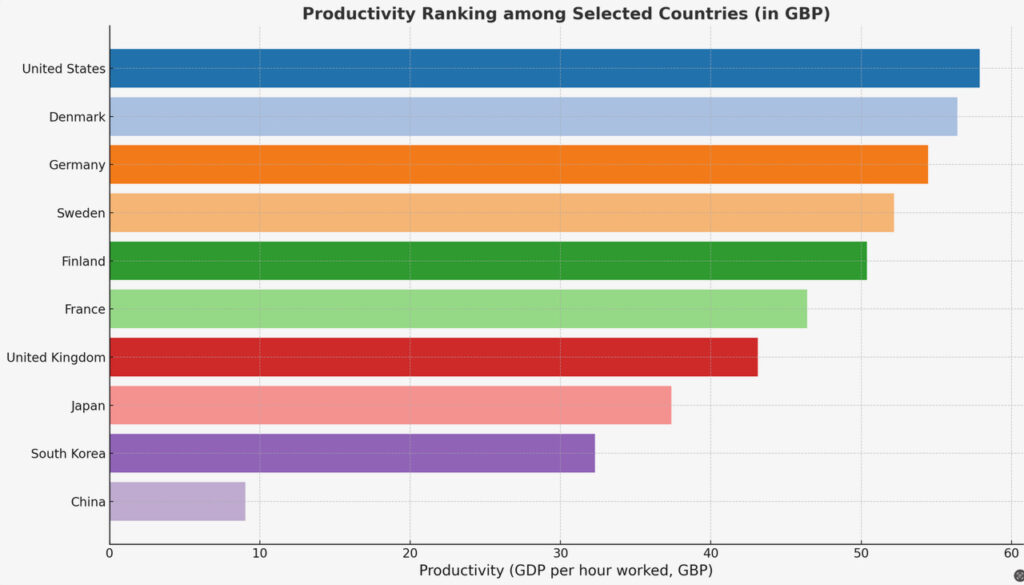It may not seem obvious, but productivity is the key to profitability.
It applies to us individually, to businesses and to the whole economy. For us to have the hospitals we need and want the housing, and all the other services that make up the welfare state takes money.
And that money isn’t The Government’s from their magic money tree, it comes from taxes. And without being too big a burden, we need the taxes paid from company profits. And for that to happen, we need to be profitable, which means high productivity.
A good way to measure productivity in a business is to divide the total revenue by the number of staff, giving a figure that represents the average revenue created by each employee. It is more useful to calculate the company’s profit (revenue minus costs) divided by the number of employees.
It can be uncomfortable looking at these figures for a whole country when we’re not doing well. The total income for a country is known as the Gross Domestic Product – the value of everything produced. Divide that by the working population and you have the average revenue per employee across a whole country.
The UK doesn’t look very good against its European neighbours – we’re placed 11th out of 15.

To make it even clearer, looking at the average company income per employee hour worked in each country. In Norway, that’s £64.82 while in the UK it’s £43.13 and in Greece, it’s £26.91.
In recent years the level of investment in UK infrastructure, machinery etc has stagnated and as a result productivity and profits have failed to keep pace with rising costs. In order for us all to have the benefits we want as a nation and the standard of living we want personally, we need to see a change – we need more investment. That’s difficult in a situation in which money to invest is relatively scarce, but we still need to do it.
There are 7 main elements in business that affect productivity, which can be summarised below:
1. Investment in Technology: Other countries have been quicker to adopt and invest in new technologies. The UK’s pace has been, shall we say, leisurely.
2. Skills and Training: There’s been a gap in skills development and training. Businesses often bemoan the lack of adequately skilled workers, which hampers productivity.
3. Infrastructure: The UK’s infrastructure isn’t always up to scratch. Anyone who’s tried to get from one end of the country to the other on our charming train network will understand this intimately.
4. Management Practices: It’s been suggested that management practices in the UK could be more effective. This includes everything from strategic decision-making to employee engagement.
5. Research and Development: The investment in R&D is also lower compared to other leading economies. Innovation drives productivity, and there’s room for improvement here.
6. Economic Uncertainty: The UK’s recent flirtations with political and economic uncertainty haven’t exactly helped. Businesses don’t thrive on unpredictability.
7. Work-Life Balance: While not directly correlated, countries with higher productivity often have better work-life balance, which in turn can boost productivity. The UK’s culture of long hours might be doing more harm than good.
In other articles, we’ll take a look at each of these and actions we can take practically to increase productivity and thereby increase profits and ultimately wages. Until then, what can you do in your business?





